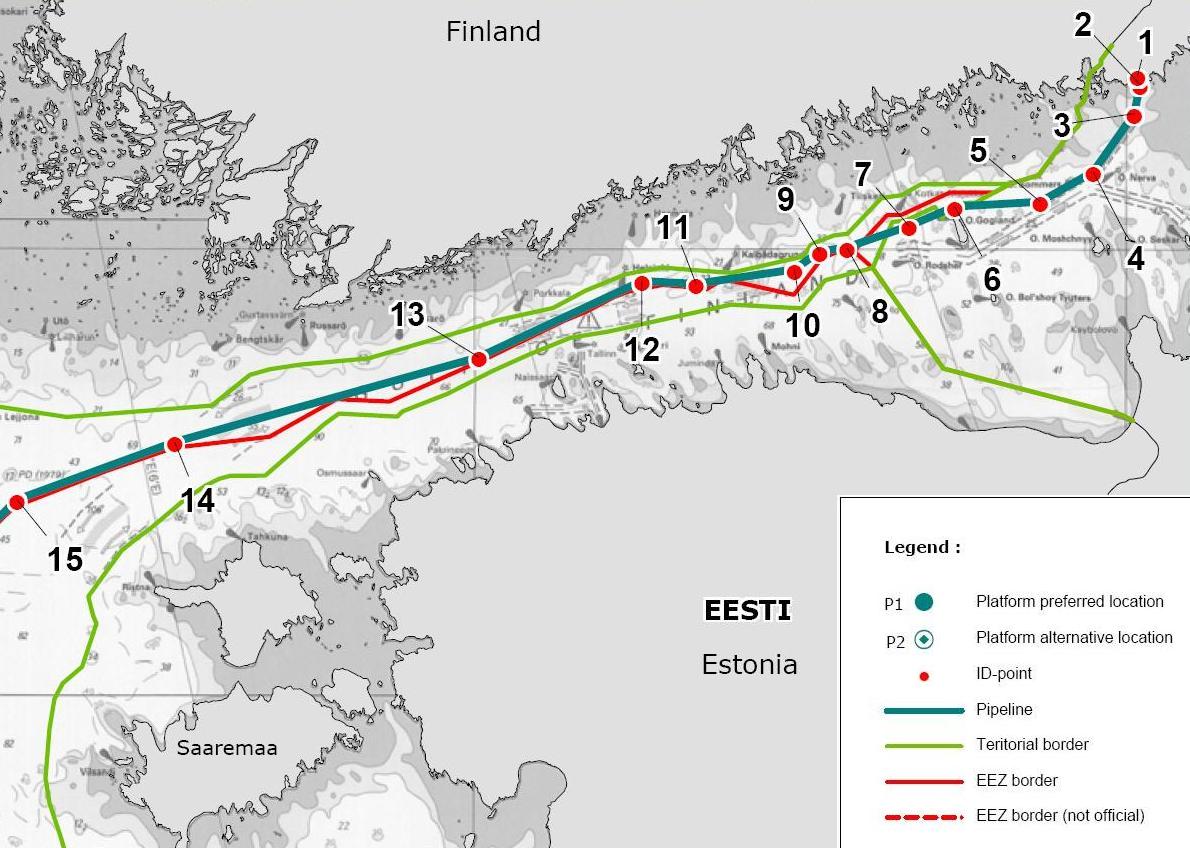|
Materials and services used at the
construction of the Nord Stream pipeline can
be subject to Estonian and/or Finnish VAT if the two countries denounce their
bilateral agreement on the territorial waters in the Gulf of Finland. Until
1994, there were no international waters between Estonia and Finland because the
gulf is not wide enough for two 12-mile zones (nautical miles). In 1994 Estonia
and Finland made an arrangement for a six-mile channel of international waters
in the middle of the Gulf of Finland.
At the time of signing it was a
symbolic act that did not have any economic meaning. Now the artificially
created corridor of international waters becomes a construction site for a very
expensive installation -
the Nord Stream pipeline. The minimum sum of VAT on the materials and
services used at the construction of two pipelines is estimated at $370 to
$450 million depending on the exact location of the route. If the price of steel
pipe, materials and services continue growing as in the last three years,
then the total sum of VAT can reach $500-600 million or even more. From the standpoint of
Realpolitik, the amount of tax is too big to give the territory for free, so
the two countries are likely to return to the pre-1994 border (the red line on
the map below).

Source:
Nord
Stream
Specifically, the border and VAT
problem concerns pipeline section between the ID points 8 and 14
(see the map above), about 250-km long. If or rather when the international waters are removed, the
Nord Stream pipeline would have a choice between the territorial waters of
Finland (VAT rate 22%) and Estonia (VAT rate 18%). The
difference can be up to $100 million. However, this sum is too small to affect
current estimations of the total cost of the Nord Stream project.
The corridor of international waters
between Estonia and Finland was created voluntarily at the time when the price
of crude oil was below $16 a barrel. It would be very natural for the two
countries to close the corridor and get their piece of action now, when the
price of crude is approaching $100 a barrel. Nothing
political, just business.
Mikhail Korchemkin, CEO, November 6,
2007
|